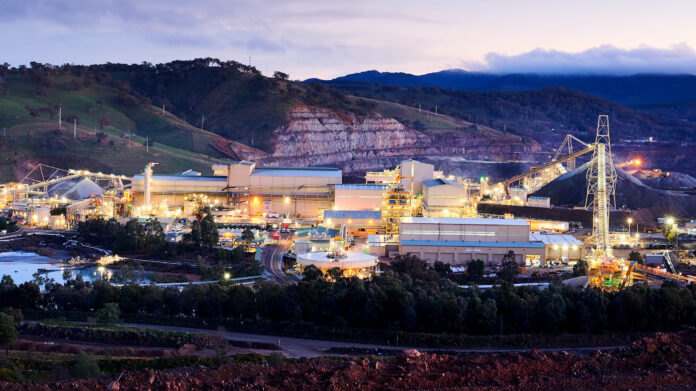US gold mining company Newmont Corporation is to junk Wi-Fi in favour of 5G on its remote controlled and autonomous machinery at its major mining operations in Australia, Africa, Latin America, and North America. The decision comes after a private 5G trial with Ericsson at its Cadia mine in New South Wales, in Australia, and has emboldened the firm to roll-out more autonomous machinery at its “tier-one” mines, it said, including drill rigs, motor graders, and haul trucks. The firm owns 14 mines on four continents.
Newmont, the only gold producer in the S&P 500 Index, and a producer of copper, zinc, lead, and silver besides, will continue to work with Ericsson on both underground and overground private 5G deployments. The Swedish firm worked with Telstra Purple, the system integration division of Australian operator Telstra, to supply telecoms equipment and spectrum for the Cadia trial, started in February 2023. The Cadia mine is billed as one of the largest underground gold and copper mines in the world.
The tests with Telstra Purple and Ericsson at the Cadia mine pre-date Newmont’s $16.8 billion purchase of rival Newcrest late last year; Newcrest is still variously listed as the site’s owner. The results are described as “strong”, putting older tests with “unreliable” Wi-Fi into the shade. The project also extended to surface-level comms at the Cadia site, using massive MIMO (including in a ‘more-massive’ 64/64 transmit/receive (64T64R) antenna configuration, plus beamforming and beam-steering – providing a “leap forward in available throughputs at the extended distances found in surface operations”.
Newmont has applied to the Australian Communications and Media Authority (ACMA) for a local licence to run private 5G in its own dedicated spectrum at all of its sites in Australia. The company also owns gold mines in Boddington in Western Australia and in the Tanami Desert in the Northern Territory in Australia. Its other mines are in Argentina, Canada, the Dominican Republic, Ghana, Mexico, Papua New Guinea, Peru, Suriname, and the US. Private 5G shows “extraordinary potential” to improve safety and productivity, it said.
It declared: “5G now has a firm place in Newmont’s comms strategies for Cadia and its other tier-one underground and surface mines across the world. Following support for the Cadia 5G trial from the Australian Communications and Media Authority (ACMA), Newmont has now applied to ACMA for area-wide licences to extend and embed Newmont’s use of 5G technology across its Australian operations. Newmont is now planning to expand the use of 5G networks across its global network of tier-one underground gold-copper mines.”
The company listed various types of autonomous and semi-autonomous mining equipment to be connected on 5G, including drill rigs, extraction drive, ore loaders, motor graders, and haul trucks, plus unspecified “mining machines” and “mining systems”. It cited the “capacity and capability” of 5G technology to “facilitate and streamline operational capabilities while deploying additional safety systems like radars and collision avoidance to improve overall mine safety systems”.
It explained the Wi-Fi comparison in a statement, as follows: “Cadia was limited to upload speeds of 20-30Mbps using Wi-Fi to operate autonomous equipment such as ore loaders and remote-controlled mining machines. Wi-Fi [was] unreliable and unpredictable under load, [with] insufficient capacity to operate the required number of machines in the one area at the same time, particularly with the amount of video upload involved. Automation safety stops were falsely triggered on a regular basis due to packet loss.”
It continued: “Using private 5G, Newmont… achieved upload speeds of around 90Mbps along access drives and declines throughout the underground complex, and 150Mbps upload and 500Mbps download on all-important extraction drives. The connections underground were found to be persistent and highly dependable, resolving historic limitations experienced with Wi-Fi and providing the consistent performance essential for remote control and autonomous mining systems.”
Suzy Retallack, chief safety and sustainability officer at Newmont, said: “The trial results show the extraordinary potential of 5G to improve safety, increase the number of machines that can be operated on a single network and boost production efficiencies in underground mining. These trials are part of the new frontier of technology in mining – using innovation to make our people safer and our mines more productive.”
Manish Tiwari, head of private cellular networks at Ericsson, said: “5G is enabling rapid global transformation of industry, supporting digitalisation and movement towards automated, more efficient, and safer operations across a number of sectors. Ericsson is proud to be partnering with Newmont on demonstrating the potential of 5G to the global mining sector.”

